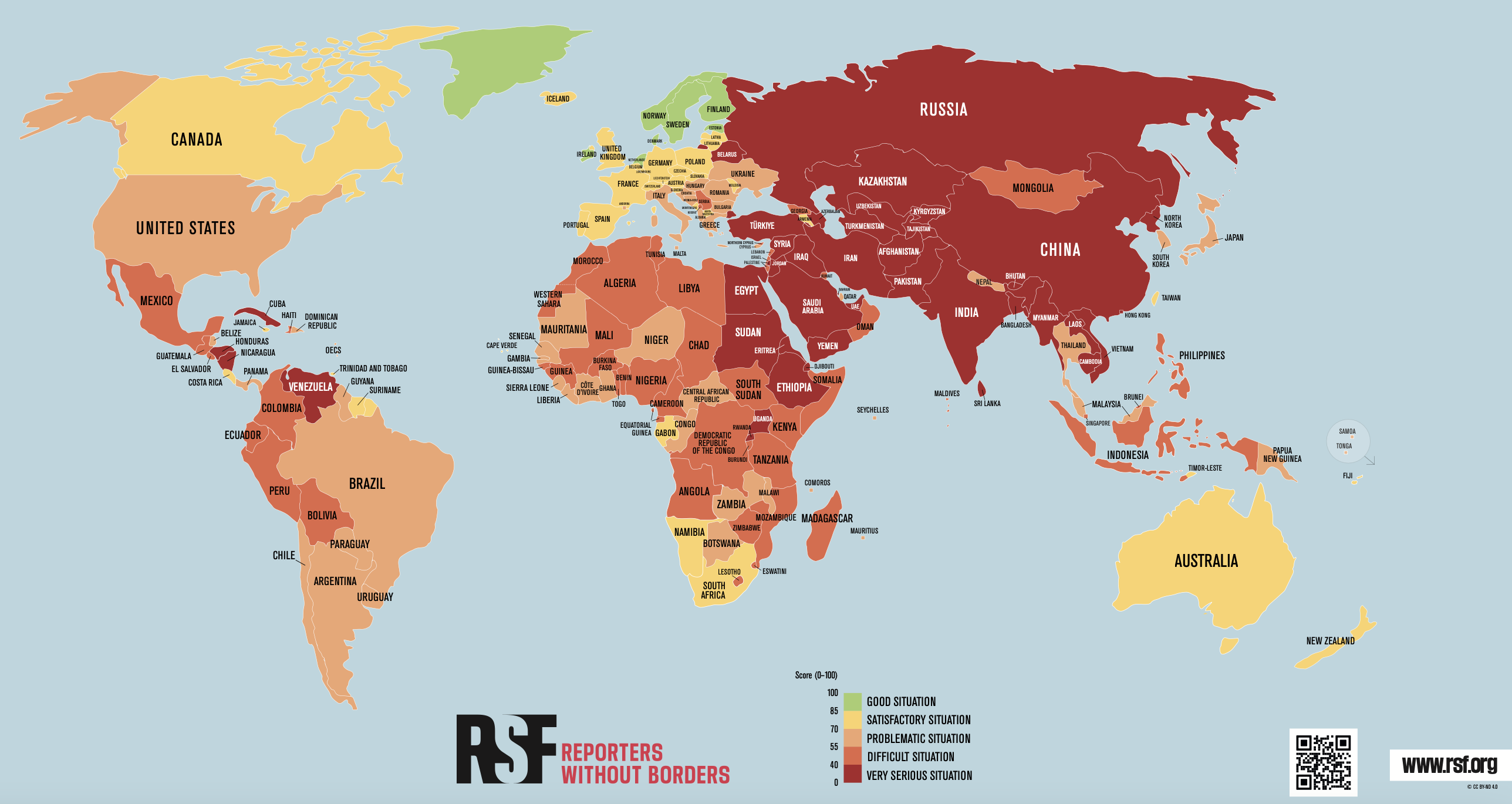PH improves in World Press Freedom Index, now at 116th

The Philippines has shown progress in the 2025 Press Freedom Index, though concerns over media harassment and red-tagging persist.
MANILA, Philippines – The Philippines has significantly improved its press freedom rank, 16 places up in the 2025 World Press Freedom Index.
From 134 out of 180 countries, the Philippines now ranks 116th. In a press release, paris-based Reporters Without Borders (RSF) said the country received a global score of 49.57, higher than last year’s 43.36.
Arthur Rochereau, RSF Asia-Pacific bureau advocacy officer, said the Philippines is considered the deadliest country for journalists in the Asia-Pacific. However, 2024 marked the year since 1995 in which no journalists were killed.
“The fact that there is no murder of journalists and also the (Marcos Jr.) administration is less aggressive towards the media compared to the Duterte administration,” he said.
Still, he said the state of press freedom in the country remains “worrisome” as media harassment continues, as well as red tagging–labelling journalists critical of the government as communist supporters.
He mentioned the recent death of Aklan-based journalist Juan Dayang and the continuous detention of Frenchie Mae Cumpio.
READ: Veteran journo, ex-Kalibo Mayor Dayang, 89, slain at Aklan home
Also, despite the increase in rank, the Philippines is among the countries classified as “difficult” due to economic sustainability.
RSF noted that while physical attacks against journalists remain the most visible violations of press freedom, economic sustainability is shaking the foundations of journalism.
“The economic indicator on the RSF World Press Freedom Index now stands at an unprecedented, critical low as its decline continued in 2025. As a result, the global state of press freedom is now classified as a ‘difficult’ situation for the first time in the index’s history,” RSF said in a press statement.
It noted that the economic indicator in the 2025 RSF World Press Freedom Index is at its lowest point in history, and the global situation is now considered ‘difficult.’
Anne Bocandé, RSF editorial director, said: “When news media are financially strained, they are drawn into a race to attract audiences at the expense of quality reporting, and can fall prey to the oligarchs and public authorities who seek to exploit them.”
“When journalists are impoverished, they no longer have the means to resist the enemies of the press — those who champion disinformation and propaganda. The media economy must urgently be restored to a state that is conducive to journalism and ensures the production of reliable information, which is inherently costly. Solutions exist and must be deployed on a large scale. The media’s financial independence is a necessary condition for ensuring free, trustworthy information that serves the public interest,” she added.
Aside from the Philippines, 47 other countries are classified as having a “difficult” press freedom situation.
Only seven out of 180 countries have good press freedom situations: Norway, Estonia, the Netherlands, Sweden, Finland, Denmark, and Ireland.